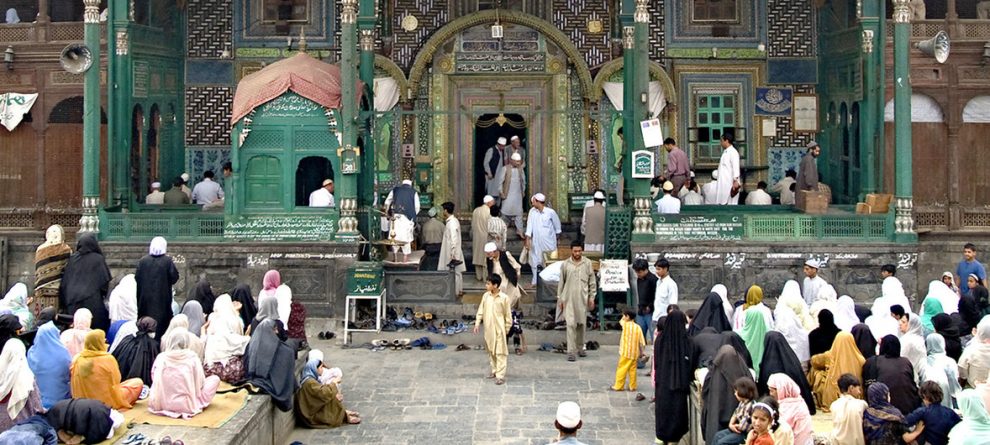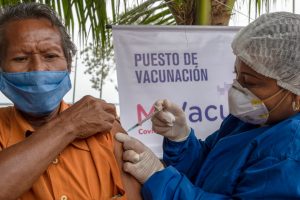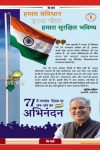Independent human rights experts of the United Nations have expressed concern that the level of political participation of Muslims and other minority groups is expected to decrease with the ending of India’s autonomous state of Jammu and Kashmir and the introduction of new laws. Human rights experts, in their statement issued on Thursday, urged the Government of India to ensure the protection of the economic, social and cultural rights of the people of the state.
The state of Jammu and Kashmir was established with the status of exclusive autonomy, with the objective of ensuring and guaranteeing the ethnic, linguistic and religious identity of the local people.
Jammu and Kashmir is the only Muslim-majority state in India and, under Article 370 of the Constitution, was given special status.
Special Rapporteur Fernanda de Varennes on Minority Affairs, and Ahmed Shaheed, Special Rapporteur on Freedom of Religion or Faith, said that the Government of India, taking unilateral decisions on 5 August 2019, without consulting the special constitutional status of Jammu and Kashmir Finished it.
UN experts warn that under the new circumstances, there may be discrimination against minorities in important areas including employment, land ownership.
“The loss of autonomy and the imposition of the direct rule of the federal government based in New Delhi show that the people of Jammu and Kashmir no longer have their own government, and have lost the power to enact or amend such laws in the region from which Protecting their rights as minorities is ensured. ”
UN experts said that the protection given to the people of that area under special, constitutional status was withdrawn in May 2020, with the so-called Domicile Rules approved.
He said that changes in land laws are weakening these protections even more.
Worried over Domicile rules
According to human rights experts, the number of successful applicants for Domicile certifications in the region has deepened the concern that on the basis of linguistic, religious and ethnic, demographic change is underway.
It seems that applicants from outside Jammu and Kashmir have also received these certificates.
According to special rapporteurs, the new laws have abrogated the old laws in which Kashmiri Muslims, Dogri, Gujjars, Pahari, Sikhs, Ladakhi and other minorities had rights to purchase property, land ownership and employment in the state.
Independent human rights experts have expressed concern that these legal changes for permanent residents outside the erstwhile Jammu and Kashmir state will pave the way for settling in the area. This will undermine the region’s demographics and undermine the ability of minorities to exercise their human rights effectively.
Independent human rights experts have urged the Government of India to ensure the protection of the economic, social and cultural rights of the people of Jammu and Kashmir.
Also, it has to be kept in mind that they are able to express their political views, and be able to participate meaningfully on issues affecting their lives.
UN experts are in touch with the Government of India in this regard.
Special Reporters and Working Groups are part of the special process of the United Nations Human Rights Council. This special process is the largest independent institution in the human rights system of the United Nations. It is actually an independent monitoring monitoring system of the Council which focuses on a particular situation in a particular country or some major issues around the world. Special Rapportiers work voluntarily; They are not employees of the united nation and they do not get any salary for their work. These Reporters are independent from any government or organization and they work in their personal capacity.
UN experts are concerned that #India’s decision to end #JammuKashmir’s autonomy and enact new laws could curtail previous level of political participation of Muslim & other minorities, as well as potentially discriminate against them in important matters: https://t.co/VnHoNwhXFL pic.twitter.com/gD81dtsaN8
— UN Special Procedures (@UN_SPExperts) February 18, 2021
भारत: जम्मू कश्मीर में बदलावों से ‘अल्पसंख्यकों के अधिकार कमज़ोर होने का जोखिम’
संयुक्त राष्ट्र के स्वतन्त्र मानवाधिकार विशेषज्ञों ने चिन्ता जताई है कि भारत के जम्मू कश्मीर राज्य की स्वायत्तता समाप्त किये जाने और नए क़ानून लागू किये जाने से मुसलमानों और अन्य अल्पसंख्यक समूहों की राजनैतिक भागीदारी का स्तर घटने की आशंका है. मानवाधिकार विशेषज्ञों ने गुरूवार को जारी अपने वक्तव्य में, भारत सरकार से राज्य की जनता के आर्थिक, सामाजिक और सांस्कृतिक अधिकारों की रक्षा सुनिश्चित करने का आग्रह किया है.
जम्मू कश्मीर राज्य की स्थापना विशिष्ट स्वायत्तता के दर्जे के साथ की गई थी, जिसका उद्देश्य, स्थानीय जनता की जातीय, भाषाई और धार्मिक पहचान का सम्मान व उसकी गारण्टी सुनिश्चित करना था.
जम्मू कश्मीर, भारत का एकमात्र मुस्लिम बहुल राज्य है और संविधान के अनुच्छेद 370 के तहत, इसे विशेष दर्जा प्राप्त था.
अल्पसंख्यक मामलों पर विशेष रैपोर्टेयर फ़रनाँड डे वैरेनेस, और धर्म या आस्था की आज़ादी पर विशेष रैपोर्टेयर अहमद शहीद ने कहा कि भारत सरकार ने, 5 अगस्त 2019, को इकतरफ़ा निर्णय लेते हुए, विचार-विमर्श किये बिना, जम्मू और कश्मीर का विशेष संवैधानिक दर्जा ख़त्म कर दिया.
यूएन विशेषज्ञों ने आगाह किया है कि नए हालात में रोज़गार, भूमि स्वामित्व सहित अन्य महत्वपूर्ण क्षेत्रों में अल्पसंख्यकों के साथ भेदभाव हो सकता है.
“स्वायत्तता का ख़त्म होना और नई दिल्ली स्थित संघीय सरकार का सीधा शासन थोपा जाना दर्शाता है कि जम्मू कश्मीर के लोगों की अब अपनी सरकार नहीं है, और उन्होंने इस क्षेत्र में ऐसे क़ानून तैयार करने या उनमें संशोधन करने की शक्ति खो दी है, जिनसे अल्पसंख्यकों के रूप में उनके अधिकारों की रक्षा सुनिश्चित होती हो.”
यूएन विशेषज्ञों ने बताया कि विशेष, संवैधानिक दर्जे के तहत उस क्षेत्र के लोगों को दिये गए संरक्षण को, मई 2020 में, तथाकथित निवास-स्थान सम्बन्धी (Domicile) नियमों को मंज़ूरी देकर, वापिस ले लिया गया.
उन्होंने कहा कि भूमि क़ानूनों में हुए बदलाव, इन संरक्षणों को और भी कमज़ोर बना रहे हैं.
डोमिसाइल नियमों पर चिन्ता
मानवाधिकार विशेषज्ञों के अनुसार, क्षेत्र में डोमिसाइल प्रमाणपत्रों के लिये सफल आवेदकों की संख्या से यह चिन्ता गहरा गई है कि भाषाई, धार्मिक और जातीय आधार पर, जनसांख्यिकी (Demographic) बदलाव लाने की प्रक्रिया चल रही है.
ऐसा प्रतीत होता है कि जम्मू कश्मीर से बाहर के आवेदकों को भी ये प्रमाणपत्र मिले हैं.
विशेष रैपोर्टेयरों के अनुसार नए क़ानूनों से, वे पुराने क़ानून निरस्त हो गए हैं जिनमें कश्मीरी मुस्लिम, डोगरी, गुज्जर, पहाड़ी, सिख, लद्दाखी और अन्य अल्पसंख्यकों को सम्पत्ति ख़रीदने, भूमि स्वामित्व और राज्य में रोज़गार के लिये अधिकार हासिल थे.
स्वतन्त्र मानवाधिकार विशेषज्ञों ने चिन्ता जताई है कि पूर्ववर्ती जम्मू कश्मीर राज्य से बाहर के स्थाई निवासियों के लिये इन क़ानूनी बदलावों से, क्षेत्र में आकर बसने का मार्ग प्रशस्त हो जाएगा. इससे क्षेत्र की जनसांख्यिकी पर असर पड़ने और अल्पसंख्यकों द्वारा प्रभावी ढँग से अपने मानवाधिकारों का इस्तेमाल करने की क्षमता कमज़ोर होगी.
स्वतन्त्र मानवाधिकार विशेषज्ञों ने भारत सरकार से जम्मू कश्मीर की जनता के आर्थिक, सामाजिक और सांस्कृतिक अधिकारों की रक्षा सुनिश्चित करने का आग्रह किया है.
साथ ही यह भी ध्यान रखा जाना होगा कि वे अपने राजनैतिक विचारों को अभिव्यक्त कर पाने, और उनकी ज़िन्दगी को प्रभावित करने वाले मुद्दों पर अर्थपूर्ण भागीदारी करने में सक्षम हों.
यूएन विशेषज्ञ इस सम्बन्ध में भारत सरकार के साथ सम्पर्क में हैं.
स्पेशल रैपोर्टेयर और वर्किंग ग्रुप संयुक्त राष्ट्र मानवाधिकार परिषद की विशेष प्रक्रिया का हिस्सा हैं. ये विशेष प्रक्रिया संयुक्त राष्ट्र की मानवाधिकार व्यवस्था में सबसे बड़ी स्वतन्त्र संस्था है. ये दरअसल परिषद की स्वतन्त्र जाँच निगरानी प्रणाली है जो किसी ख़ास देश में किसी विशेष स्थिति या दुनिया भर में कुछ प्रमुख मुद्दों पर ध्यान केन्द्रित करती है. स्पेशल रैपोर्टेयर स्वैच्छिक रूप से काम करते हैं; वो संयक्त राष्ट्र के कर्मचारी नहीं होते हैं और उन्हें उनके काम के लिये कोई वेतन नहीं मिलता है. ये रैपोर्टेयर किसी सरकार या संगठन से स्वतन्त्र होते हैं और वो अपनी निजी हैसियत में काम करते हैं.






















Add Comment